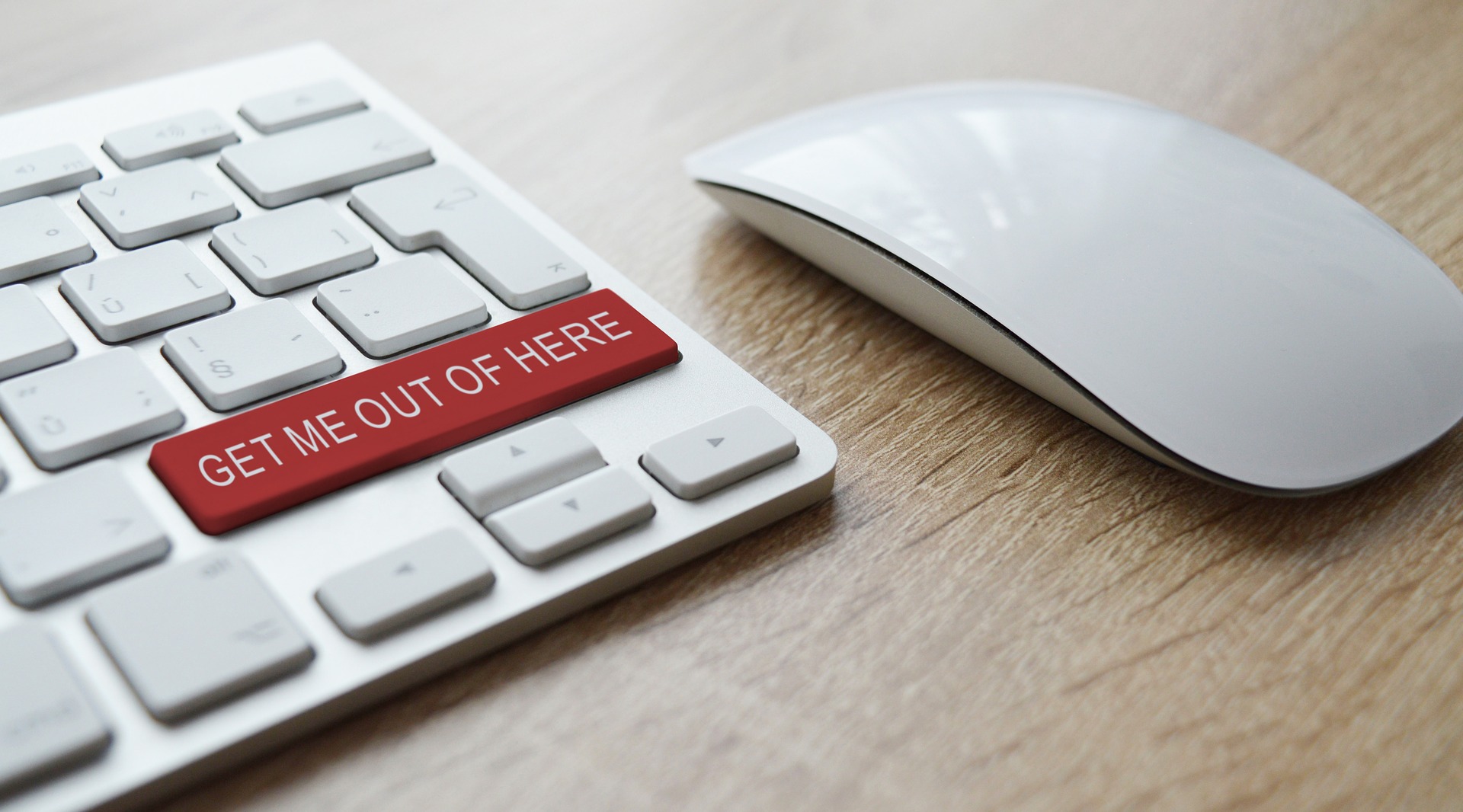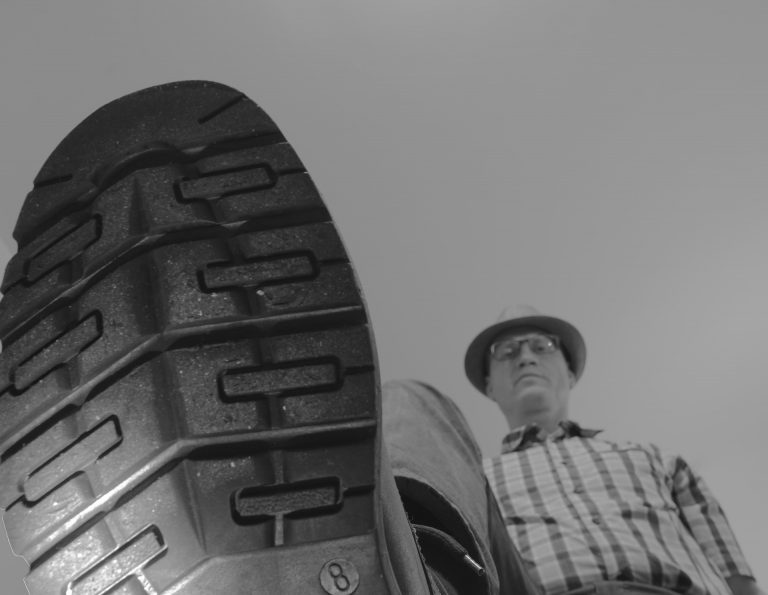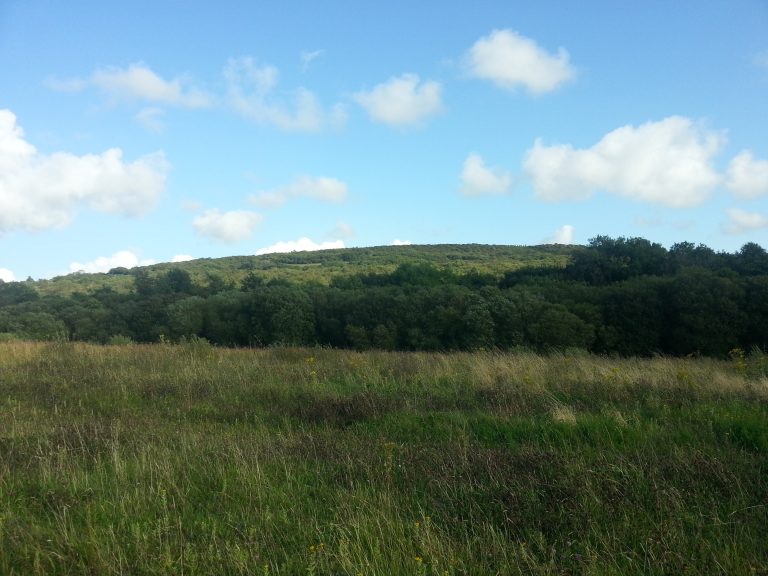
We’ve all suffered from bouts of obsessive-compulsive disorder, checking the door multiple times to make sure that it’s locked is incredibly common, worrying about things that you cannot control is even more common, whether it’s keeping your job, or keeping that roof above your head or having enough money to last the month, we’ve all experienced bouts of anxiety and obsessive-compulsive disorder (OCD).
None of us, however, give any thought to the fact that anxiety and OCD is just part of what it is to be a human being. Animals that are prone to be prey are prone to worry. Human beings were once prey animals to really big cats, Sabertooth Tigers most likely.
Hence there’s a part of the brain that today is still on the lookout for Sabertooths, spiders and snakes, not to mention the ill will of other men. It’s the right-hand side of the brain, home to the subconscious, creativity, imagination and all artistic endeavour, having the capacity to delight and to thrill yourself and others via its inventive enterprises like story-telling, music, painting and the expression of the imagination.
“We are more often frightened than hurt; and we suffer more from imagination than from reality.”
Seneca
The right-hand side of the brain has access to more senses and information than we are consciously aware. It is the home to the ‘gut feeling,’ that inner, nagging, doubtful sense that something is wrong. If cultivated fully it can even tell you via the mystic language of emotion, dreams and visions exactly what is wrong and who the bad actors are in your life, that is if you let it. If you learn to listen to it and harvest its wisdom.
“Shall I tell you what the real evil is? To cringe to the things that are called evils, to surrender to them our freedom, in defiance of which we ought to face any suffering.”
Seneca
You have to learn to listen to your gut feeling, so called because you really do feel it in your gut, emotions and fears hit the stomach first, that’s why our ancestors used to think that courage came from the stomach. It’s also the reason why we comfort eat ‘carby,’ foods today. The world is a lot more manageable on a full stomach.
Over the years I’ve made a habit of listening to my gut, my gut feeling is always right! So right in fact, that it communicates rather successfully with the left-hand side of my brain, the part that evolved for problem solving, logic and hunting via moments of epiphany. That sudden burst of realisation when an idea or new understanding presents itself fully formed to my conscious awareness as if it has come from nowhere because it usually has.
The conscious mind is the man that rides on the top of the elephant. He thinks he has control but if something should scare the elephant then it quickly evaporates as the mighty beast charts its own course away from the source of anxiety.
Anxiety can make you afraid to leave the house, afraid to go to work, afraid to speak to people, afraid simply to live, because once it’s been proven right, it’s always right and it’s voice gets louder. Anxiety can easily and perniciously destroy an otherwise healthy life.
Anxiety is as old as humanity and something that we today are not unique in suffering from, the ancients had their fair share and lived lives that are remarkably similar in outlook to how we live today.
They worried about the rent, about keeping their jobs, about making money stretch, about being falsely accused of a crime, or how to feed the kids, or how to avoid being sent to the lions or worse yet into exile. The modern world hasn’t changed that much. Instead of ‘exile,’ we have ‘prison,’ instead of making money stretch we have ‘financial constraints,’ instead of ‘rent,’ we have ‘rent,’ instead of the games we have ‘reality TV.’
I don’t know which is the more brutal, having your throat slit in front of an audience of thousands or having your character eviscerated in front of an audience of millions.
“In the morning they throw men to the lions and the bears; at noon, they throw them to the spectators.”
Seneca
My ultimate point is that people today aren’t any different psychologically speaking to how they were two thousand years ago, fifty thousand years ago or even two million years ago when they first separated from the other monkeys that were knocking around in Africa back in the day…
Thankfully the Stoics were the absolute masters of mental health using both the critical faculties of the left-hand side of the brain in conjunction with the emotive faculties of the right. To such men, the relationship between hemispheres becomes less like the master/servant relationship of rider and often uncontrollable elephant and more like one of a man and his guard dog.
The man is always in control and the guard dog alerts him as necessary to danger, but being well trained always follows the man’s orders, behaves properly with others and is a much loved, valued and respected companion.
So how do we train our guard dog?
You can start by making a simple list of things that are worrying you then divide them into 3 columns, headed:
Things I cannot control.
Things I have some influence over.
Things I can fully control.
The things that you cannot control should immediately be discarded, don’t give them a second thought, learn the stoic discipline of apatheia.
Apatheia, in Stoicism, refers to a state of mind in which one is not disturbed by the passions. It is best translated by the word equanimity rather than indifference.
In other words, you treat the things that you cannot control with as much equanimity as you can muster.
If you can’t alter events or offer any influence over the things that cause you anxiety you have to take a view of ‘what will be, will be,’ and think no more of them as there is nothing you can do about them, this can take time, so start by giving them as little attention as you can manage and when you do think of them, just shrug and think to yourself ‘nothing to do with me!’
Then start planning and put your energies into the things that you can control and you can have some influence over.
Stoic Negative Visualisation.
Take your mind and think of everything that could possibly go wrong, imagine what it would be like to be in those circumstances and how these events would make you feel, then think of how you would cope in those circumstances. What could you do to make the best of it if those terrible things that make you anxious came to pass?
This is another stoic technique that should reinforce the idea that the whole world can go to hell in a handcart, but as long as you address your fears and anxieties and listen to what they are trying to tell you with stoic techniques such as ‘negative visualisation,’ then you’ll always find a way to cope and you’ll be fine.
Stoic Negative Visualisation is a great planning tool if used properly, it will give you a course of action and a strategy to try out if the worst should happen. Having a range of options is better than none, so get visualising, negatively!
The key thing is not to ignore your anxieties, delve into them as they are quite rational and are trying to tell you something important if you ignore them they will eat you alive.
Dealing with your anxieties head-on with a stoic attitude will not only empower you but will make you feel good and able to deal with the complexities of the world beyond you.
Delving into all that is bad and threatening is far from negative, it’s actually a path to happiness and control.
“If you really want to escape the things that harass you, what you’re needing is not to be in a different place but to be a different person.”
Seneca
Next you must treat each day as a separate life, what affects you today you will deal with today, what will affect you tomorrow you will give no thought to until tomorrow. What happened yesterday is already in the past and unchangeable, hence there’s no point in thinking of it.
“Begin at once to live, and count each separate day as a separate life.”
Seneca.
Worrying about the past is as useless as a man trying to eat from an empty plate! Worrying about the future as imbecilic as trying to eat all future meals at once!
“Two elements must, therefore, be rooted out once for all, – the fear of future suffering, and the recollection of past suffering; since the latter no longer concerns me, and the former concerns me not yet.”
Seneca
Anxiety is just the recognition that the world is a complex place, that stuff can and will go wrong and that it might affect you in a big or small way.
Anxiety comes about when we attempt to control everything that we may see or perceive as a threat to our existence, naturally enough we can’t control everything which is why we feel anxious. Anxiety is an attempt to control the uncontrollable.
As for the OCD, stoic practices such as negative visualisation and focusing only on what you can control or alter will lessen this over time as the mental energy is directed into activities that help you master what you can influence.
“Sometimes even to live is an act of courage.”
Seneca
One final point, take a few moments to try to remember the things that you worried about from six months ago, I bet that nearly all of them haven’t come to pass…
Now read:
11 Ways to Banish Anxiety and live each day as a separate life.

